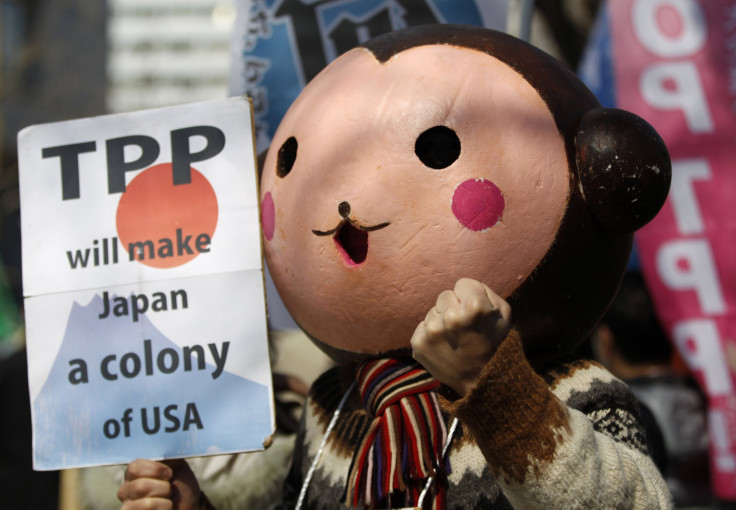New Leaked TPP Documents: WikiLeaks Reveals US Exerting ‘Great Pressure’ For Consensus On Intellectual Property, Other Issues During Secretive Trans-Pacific Partnership Talks

A new set of leaked documents concerning the Trans-Pacific Partnership, or TPP, negotiations, which were published by WikiLeaks on Monday, reinforced revelations made in November that the U.S. is secretly pushing for an intercontinental law enforcement system to crack down on copyright infringement and other key issues, despite deep disagreements with other nations and a public outcry against such proposals.
The U.S. is leading the talks in Singapore to carve out one of the most ambitious free-trade agreements in history that is currently being negotiated between Australia, Japan, Canada, Singapore, Brunei, Chile, Malaysia, Mexico, New Zealand, Peru and Vietnam. The member nations, which represent more than 40 percent of the global economy, are racing to beat a deadline set by the U.S. for the end of the year.
An earlier raft of documents, released by Julian Assange’s WikiLeaks ahead of a meeting of TPP's chief negotiators in Salt Lake City, Utah, in November, had revealed that the U.S., which is the chief negotiator in the discussions, is seeking a wider net of intellectual property protections for its pharmaceutical and other companies.
WikiLeaks said on Monday that, “one document describes deep divisions between the United States and other nations, and “great pressure” being exerted by the US negotiators to move other nations to their position.”
“The other document… suggests that the TPP negotiations can only be concluded if the Asia-Pacific countries back down on key national interest issues, otherwise the treaty will fail altogether,” WikiLeaks said, in a statement accompanying the release.
The documents indicated that the U.S. plans to force member nations to accept its stance on intellectual property rights, and while Singapore could side with the U.S., Canada is under “high-pressure” to not file a counterproposal.
The U.S. also revived an annex to the TPP’s transparency chapter, which targets programs for subsidizing medicines and medical devices, while limiting governments’ ability to regulate pharmaceutical industry prices. The annex has been strongly rejected in the past by other negotiators, but the U.S. now says that the annex does not apply to all countries and that it was asked to insert a footnote to that effect, the document said.
The controversial proposal on investor-state dispute settlement, which allows corporations to sue governments over local regulations, has been one of the key barriers in reaching an agreement on investment under TPP. Only the U.S. and Japan support the proposal, the documents showed, while other nations have objected to it and the U.S. is unwilling to allow changes suggested by other negotiators.
Negotiations on financial deregulation proposed under the TPP, restricting governments’ ability to regulate financial services firms and control the flow of short-term capital in and out of economies, also remain paralyzed due to “zero flexibility” on the part of the U.S., the documents said.
The documents also showed that a stalemate continues on a range of issues including a proposal for privatizing state-owned enterprises or for eliminating subsidies given to them as well as on a proposal to improve the entry of goods into different markets. Other issues with little consensus include environment regulation, trade of tobacco and agricultural export subsidies, according to the documents.
© Copyright IBTimes 2024. All rights reserved.












